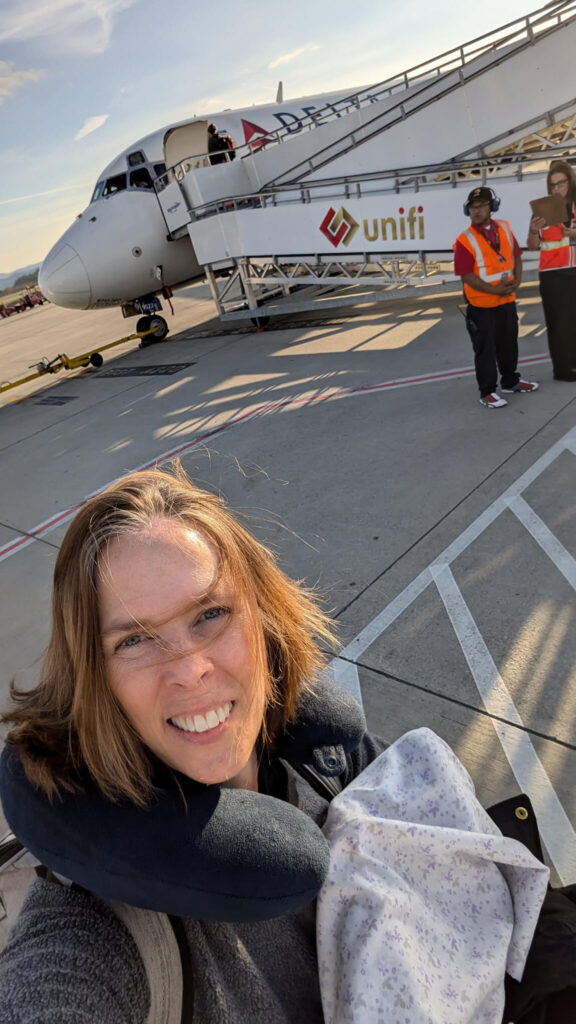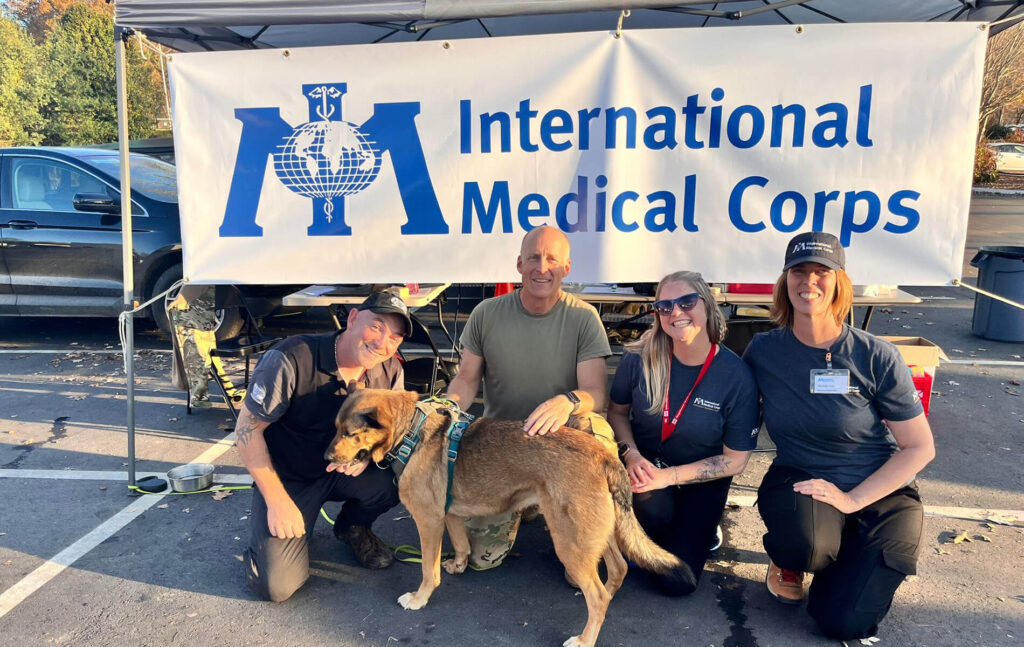When Hurricane Helene slammed into the southeastern United States on September 26, it brought with it catastrophic levels of rainfall and flooding. The city of Asheville, North Carolina, was particularly hard-hit. In response, International Medical Corps deployed clinical volunteers and support staff to western North Carolina to provide primary care and behavioural health services at shelter sites, working closely with the local Department of Health, the Red Cross and other local, state, federal and nonprofit partners. Our team also provided alternate power sources, coolers for medicines that require refrigeration, tents for mobile health units, hygiene kits, food, water, and portable showers and washing machines.
Michelle Frias, a social worker with a background in crisis work who had previously worked for International Rescue Committee, spent three weeks volunteering with us on this response. Not only was it Michelle’s first deployment with International Medical Corps, it was also the first time that our organisation provided mental health care services during an emergency in the US.

Michelle acted as a rover, working across three shelters in Asheville. Many of the clients she saw had lost homes during the storm, while others had previously been unhoused and were trying to get back on their feet in the midst of the devastation. As Michelle provided psychological first aid—an approach that caregivers and first responders take to recognise and reduce mental distress in the wake of disaster—clients told her harrowing stories about their experiences during and after the storm.
“People told me that the water came up 29 feet [8.8 meters] in some areas,” Michelle says, describing damage that included downed trees, mobile homes washed up on the sides of streets and flipped-over cars. One resident told her that he had been pinned under a fallen tree for two days before he was freed and sought medical help.
Michelle also met a man named Steven, who had been homeless before the storm hit Asheville. Steven came to one of the International Medical Corps-supported shelters each day to get food, take a shower and wash his clothes before going to work. Steven had a job at a local restaurant and—in an effort to earn enough money to rent an apartment—had recently taken on a second job.
But there was one problem. Steven owned a dog named Clara. Though the restaurant allowed Steven to bring Clara to work and tie her up behind the building, the second employer wouldn’t let him bring the dog with him.
Part of psychological first aid involves linking people with external services that International Medical Corps may not be equipped to offer. When Steven told Michelle that he didn’t have a place to leave Clara while he was at work, she contacted the American Society for the Prevention of Cruelty to Animals (ASPCA), a nonprofit that advocates and provides services for domestic animals. The ASPCA told Michelle that they had established a hurricane-relief programme that gave homeless pets a place to stay full-time for up to 30 days, with visiting hours so that the owners could visit their animals. Clara was the first pet to join the programme, and she and Steven quickly became beloved by ASPCA staff. At the same time, Michelle worked with community partners to make sure Steven could get free medications and looked into different services he could use to access transitional housing.


Michelle and the International Medical Corps team took a similar approach with many other clients, linking them with the services they needed to regain stability. “All the teams were coming together, trying to put transition plans together for the clients we were working with,” she says. “It was really a team effort.”
Self-Care for First Responders
As Michelle helped people who had lost everything in the storm, she also watched out for her colleagues, helping them take care of themselves during an emergency response that could sometimes feel overwhelming.
“I had staff come to me to talk about self-care,” she says, emphasising the importance of thinking “about your schedule, sleep patterns, eating and all those things that we put in the back of our minds when we’re in a crisis moment.”
Michelle, who says that self-care isn’t complicated, offered the following advice to her colleagues on the response.
- Make sure you’re getting enough sleep and eating enough.
- Take the time to get some fresh air—even if it’s just for 10 minutes.
- Exercise, if and when you can.
- Try to maintain balance. If you have to work a longer day, try to make up for it by having a good meal in the evening and getting adequate sleep.
- Reach out for professional counselling if you need it, especially when you’re reintegrating into your home community following a deployment.
After our Asheville response, Michelle hopes to deploy with International Medical Corps again and will lend her expertise in mental health and self-care to help our staff members and volunteers in the future.
“I felt very grateful for my time on the response,” Michelle says. “I would be ready to deploy again, if and when the need arises.”
